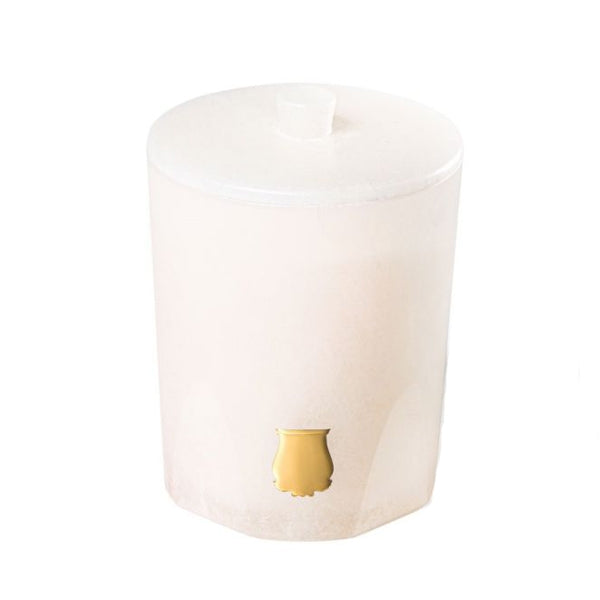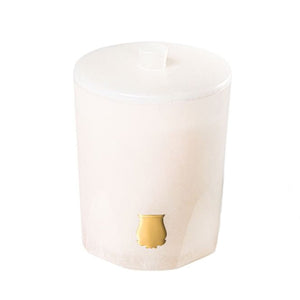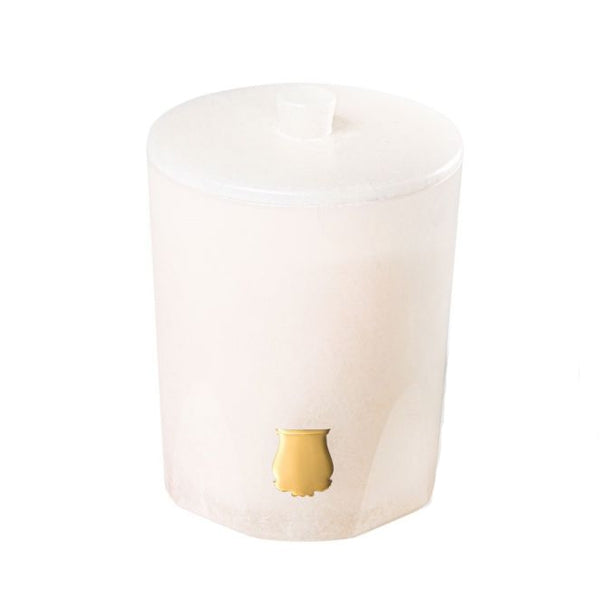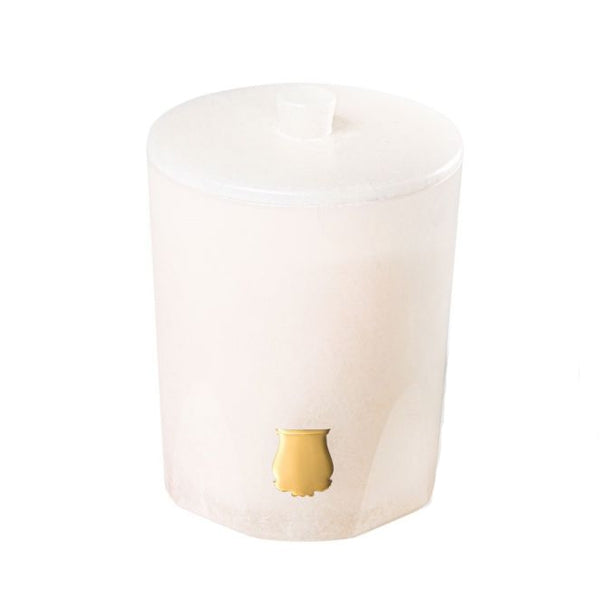Trudon presents its new series in luminescent white: Les Albâtres.
Delicate alabaster replaces traditional glass and crowns three scented candles with matching lids: Ernesto, Abd el Kader and Héméra.
Popular with the Greeks, Egyptians and Romans since ancient times, alabaster is a very soft stone whose milky properties allow light to pass through.
Many art objects and artefacts made of alabaster are kept in important museums: they symbolise elegance, finesse and purity. In ancient Greece, alabaster was also the name of a perfume vessel without a handle (αλάϐαστρος/alabastros).
Shaped from blocks with more or less pronounced grain in Spain, Trudon vessels and lids are naturally unique with their exposed grain. Applied to the alabaster, a golden metal label echoes the silhouette of the manufacturer's coat of arms. Brought to life by the flickering candle, the translucent alabaster awakens. Extinguished and covered by its lid, the candle is transformed into a modern, sophisticated design object, a collector's item.
A new raw material: numerous nuances, tones and facets
Introducing a new raw material to the product range: alabaster, a translucent stone that offers a wide range of shades and grains. Each candle is unique, the nuances endless, which means that we cannot describe the colour of the glass or the structure of the grains of each candle exactly.
Handcraft
The alabaster vessels, moulded from a single block in Spain, and their matching lids are unique: the alabaster veins running across the surface are one of a kind. A minimalist yet aesthetic golden metal crest recalls the history of their manufacture.
Héméra, a new fragrance created exclusively for Trudon's Les Albâtres line, embodies the arrival of dawn. As a goddess in Greek mythology, she represents the earthly light that dispels the night and heralds the morning.
The fresh spices of the top notes – pink pepper and coriander – are complemented by sensual, amber base notes: teak, sandalwood and cashmere wood are balms reminiscent of Asian landscapes.
Burn time: 55–60 hours








